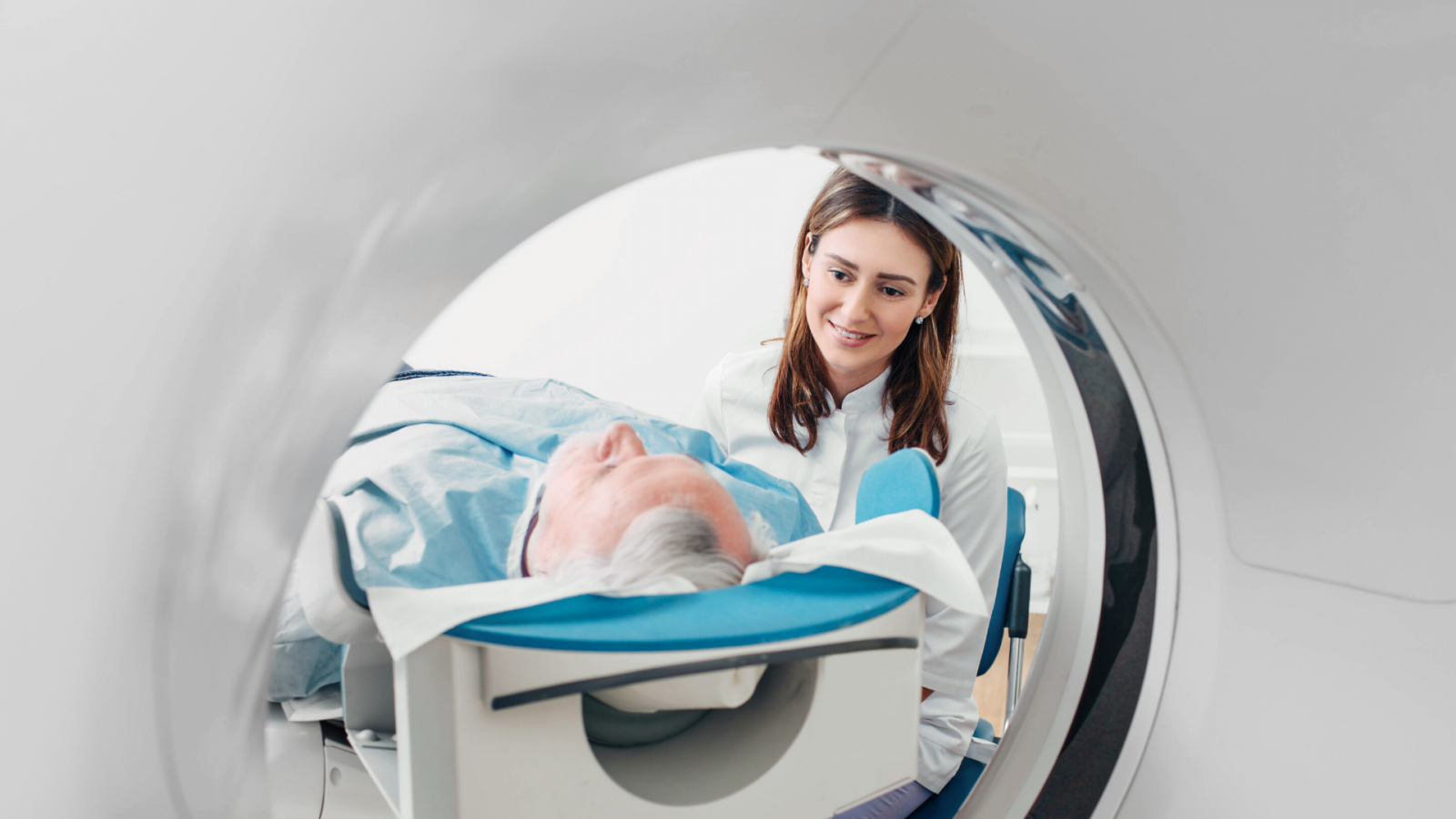Tests after prostate cancer diagnosis

If you’re diagnosed with prostate cancer, you may have more tests. Whether you need any tests or not depends on the results of your PSA, Gleason score and how your prostate gland feels to touch. Your doctor will let you know which tests you need to have, if any.
The tests can find out:
- How large is the cancer?
- Where exactly is the cancer?
- Has the cancer spread to any other parts of your body?
This is called staging. The biopsy sample can also be used to grade your cancer. This tells the doctor how fast it’s likely to grow. Read more about staging and grading prostate cancer.
Some of these tests can also be used to check how you are responding to treatment.
Tests you may have include:
MRI scan
A scan that uses magnetic energy to build up a picture of the tissues in your chest, abdomen and pelvis. During the scan you will lie inside a tunnel-like machine.
CT scan
A type of X-ray that gives a detailed picture of the tissues inside your body.
PET scan
A scan that uses a radioactive injection to show up cancer cells.
Bone scan
A radioactive injection that can show areas of abnormal bone on a scan, which may be caused by cancer that has spread.
Bone X-ray
You may have bone X-rays if the bone scan shows up any abnormal areas. These X-rays will help to confirm if the cancer has spread or not.
Abdominal ultrasound
A device like a microphone passed over your tummy area. It can show any abnormal changes.
Mp-MRI (multi parametric magnetic resonance imaging)
This is a special type of scan that creates more detailed pictures of your prostate than a standard MRI.
PSMA PET scan
A type of PET scan, which uses a special antibody molecule and radioactivity to see if the prostate cancer has spread to the lymph nodes or other parts of the body.
PSA test
When doctors check the prostate gland, they often do a PSA test. The PSA test measures levels of the PSA protein in your blood. This can show how well you’re responding to treatment. We have information on understanding PSA test results.
Trans-rectal ultrasound (TRUS) biopsy
Your urologist inserts an ultrasound probe with needle into your rectum. Tissue samples of the prostate and surrounding area are taken.
Read more about these tests.
These tests will help your doctor to decide on the best treatment for you.
For more information
Phone
1800 200 700



